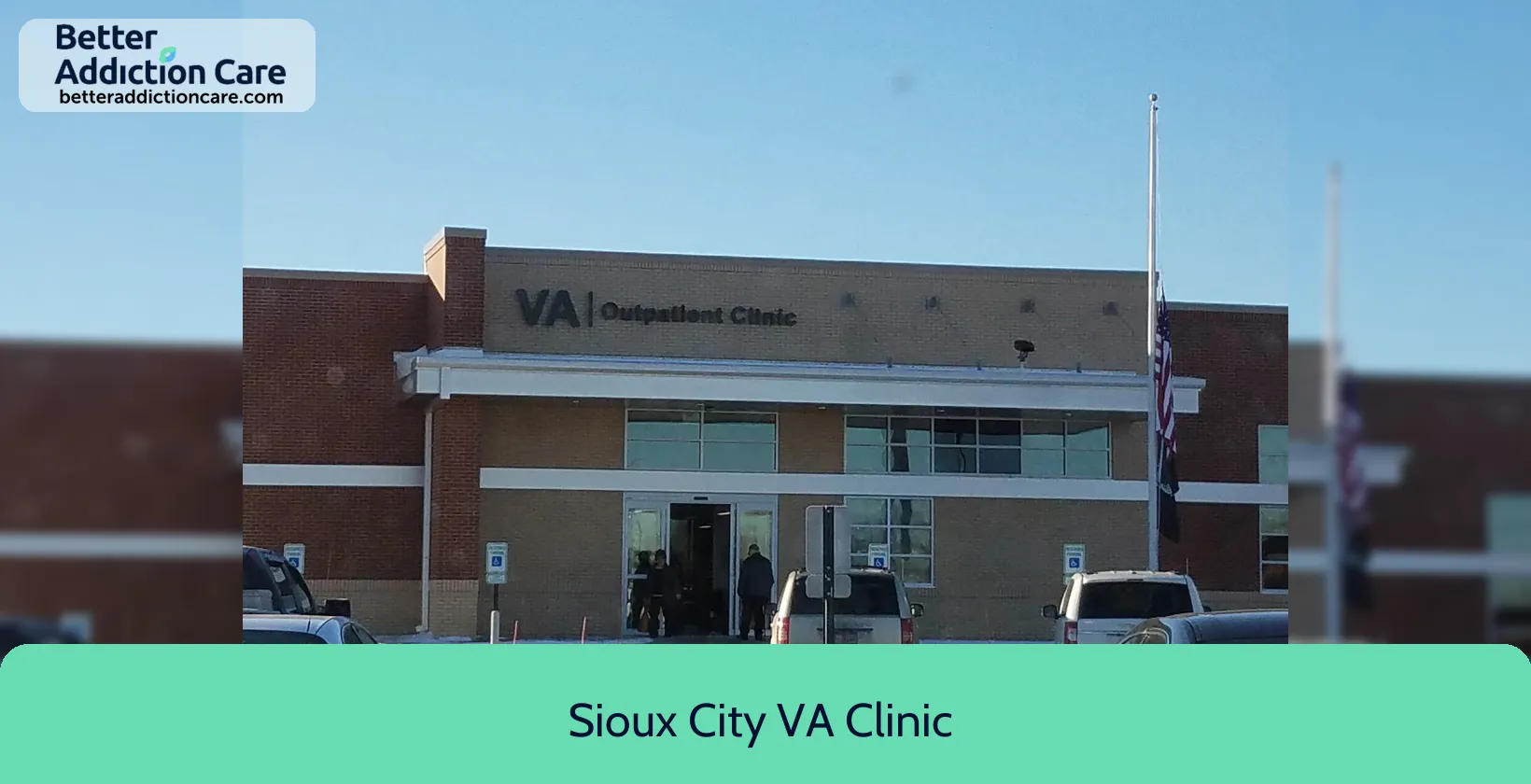Sioux City VA Clinic - Dakota Dunes CBOC
Overview
Sioux City VA Clinic - Dakota Dunes CBOC is a substance abuse treatment center for people seeking treatment near Union County. As part of their treatment modalities for recovery, Sioux City VA Clinic - Dakota Dunes CBOC provides couples/family therapy, group counseling, and cognitive behavioral therapy during treatment. Sioux City VA Clinic - Dakota Dunes CBOC is located in North Sioux City, South Dakota, accepting cash or self-payment for treatment.
Sioux City VA Clinic - Dakota Dunes CBOC at a Glance
Payment Options
- Cash or self-payment
- Medicaid
- Medicare
- State-financed health insurance plan other than Medicaid
- Private health insurance
Assessments
- Screening for tobacco use
- Comprehensive mental health assessment
- Comprehensive substance use assessment
Age Groups
- Young adults
- Adults
- Seniors
Ancillary Services
- Case management service
- Chronic disease/illness management
- Family psychoeducation
- Illness management and recovery
- Psychosocial rehabilitation services
Highlights About Sioux City VA Clinic - Dakota Dunes CBOC
6.71/10
With an overall rating of 6.71/10, this facility has following balanced range of services. Alcohol Rehabilitation: 8.00/10, Drug Rehab and Detox: 6.00/10, Insurance and Payments: 6.00/10, Treatment Options: 6.85/10.-
Alcohol Rehabilitation 8.00
-
Treatment Options 6.85
-
Drug Rehab and Detox 6.00
-
Insurance and Payments 6.00
Treatment At Sioux City VA Clinic - Dakota Dunes CBOC
Treatment Conditions
- Alcoholism
- Mental health treatment
- Substance use treatment
- Co-occurring Disorders
Care Levels
- Outpatient
Treatment Modalities
- Couples/family therapy
- Group counseling
- Cognitive behavioral therapy
- Dialectical behavior therapy
- Integrated Mental and Substance Use Disorder treatment
Ancillary Services
Languages
- Sign language services for the deaf and hard of hearing
Additional Services
- Pharmacotherapies administered during treatment
- Housing services
- HIV testing
Special Programs
- Clients with co-occurring mental and substance use disorders
- Veterans
- Clients who have experienced trauma
- Persons with post-traumatic stress disorder (PTSD)
- Active duty military
Contact Information
Read our Most Recent Article About Drug Addiction
DISCLAIMER: The facility name, logo and brand are the property and registered trademarks of Sioux City VA Clinic - Dakota Dunes CBOC, and are being used for identification and informational purposes only. Use of these names, logos and brands shall not imply endorsement. BetterAddictionCare.com is not affiliated with or sponsored by Sioux City VA Clinic - Dakota Dunes CBOC.









